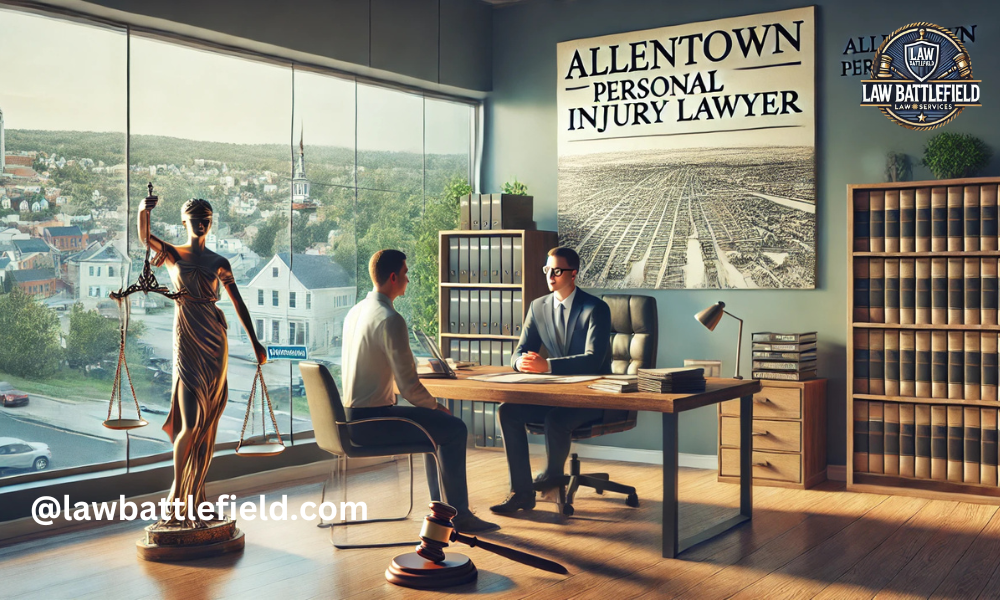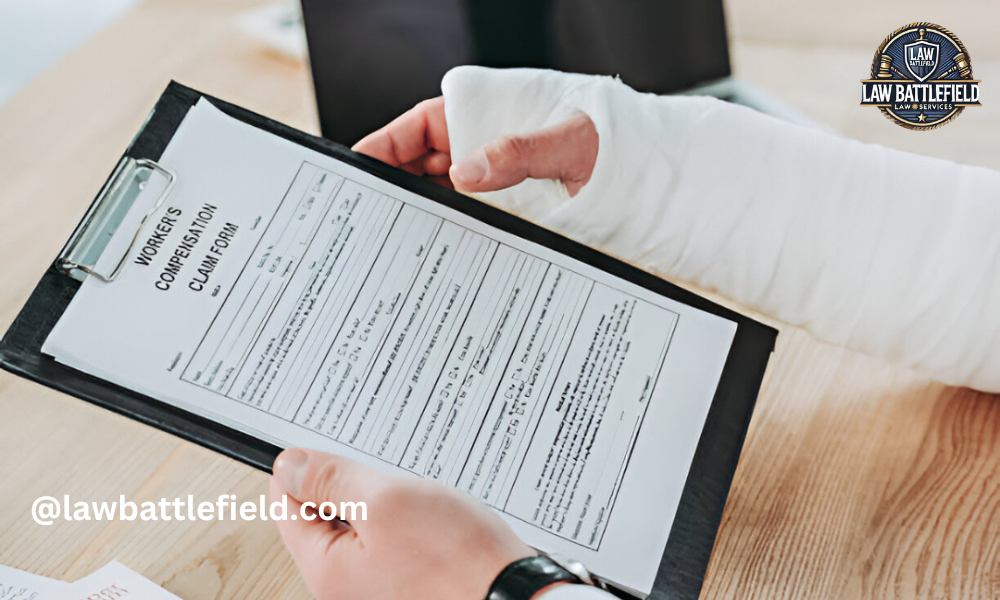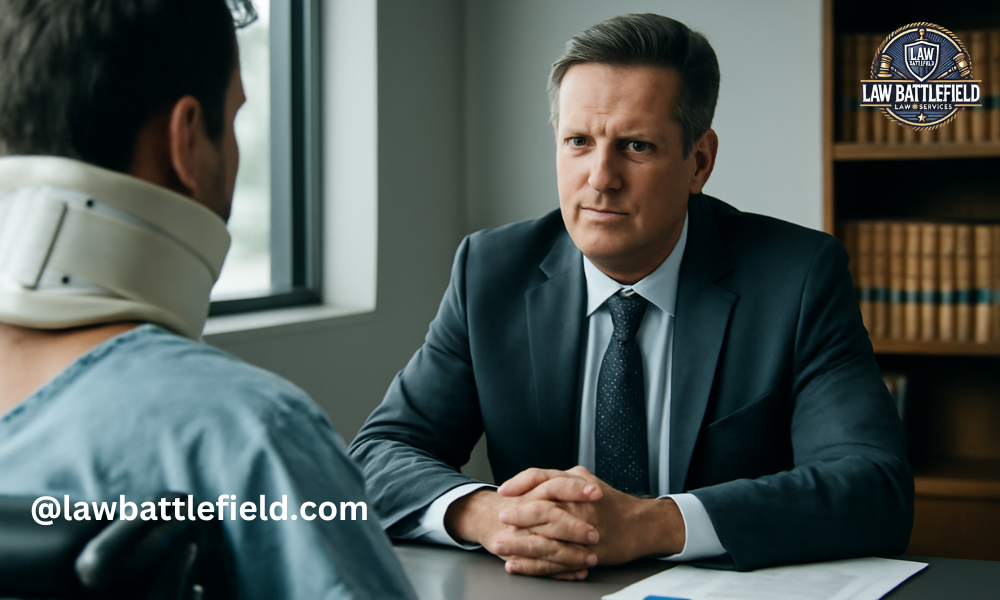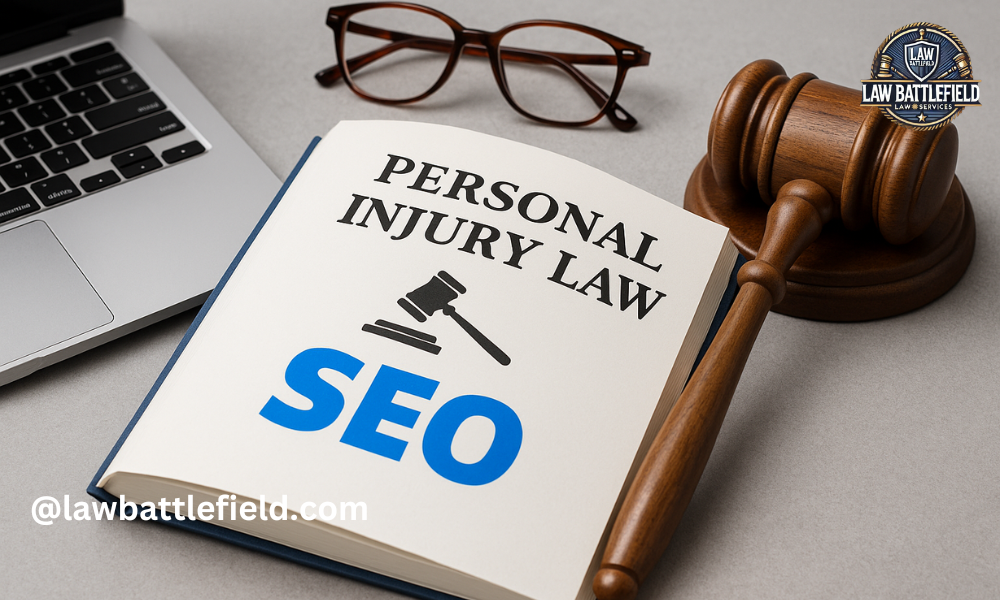Introduction To Personal Injury Law In Allentown
Personal injury law helps people who suffer harm because of someone else’s actions or negligence. When accidents happen—whether on the road, at work, or in a public place—personal injury law makes sure victims can get compensation for their losses. This is important because injuries often lead to unexpected medical bills, missed work, and emotional stress.
In Allentown, personal injury lawyers work to protect the rights of injured individuals. These lawyers specialize in getting fair compensation for people affected by accidents or negligence. They handle everything from car crashes and medical malpractice to workplace injuries and dog bites. Their goal is to hold the responsible parties accountable and help their clients get back on their feet financially and emotionally.
Personal injury lawyers in Allentown also know the local laws and procedures, which helps their clients get the best outcomes possible. For anyone facing injuries caused by others, getting help from a lawyer ensures that insurance companies or the responsible parties don’t avoid paying what’s fair. With the right legal support, victims can focus on healing while their lawyer handles the paperwork, negotiations, and legal procedures necessary to secure compensation.
Why Hire An Allentown Personal Injury Lawyer?
Local Expertise: Knowledge Of Allentown And Lehigh Valley Laws
Laws and legal procedures can vary across different cities and states. Hiring a personal injury lawyer from Allentown ensures that the attorney understands the specific laws and regulations of Pennsylvania, especially those relevant to the Lehigh Valley region. A local lawyer knows how the courts, insurance companies, and legal processes work in this area, giving clients an advantage. This knowledge helps in building strong cases, whether it’s related to car accidents, workplace injuries, or medical malpractice.
Compassionate And Aggressive Representation
Personal injury lawyers not only fight to recover maximum compensation but also offer emotional support during challenging times. A good Allentown personal injury lawyer listens to the client’s story, understands their pain, and builds a case accordingly. While they remain compassionate toward the client, they are aggressive in holding the responsible parties accountable. This balance ensures that the victims get both justice and peace of mind, knowing they are supported throughout the process.
Contingency Fee Basis: Pay Only If The Case Is Won
One of the biggest benefits of hiring a personal injury lawyer in Allentown is the contingency fee arrangement. This means clients do not need to pay anything upfront. The lawyer only collects a fee if they win the case or secure a settlement. This arrangement reduces financial stress on the injured person and ensures that the lawyer is motivated to achieve the best possible outcome. There are no hidden fees, and clients can focus on their recovery without worrying about legal expenses until compensation is received.
Common Types Of Personal Injury Cases Handled In Allentown
Car Accidents: Injuries From Negligent Drivers
Car accidents are among the most common personal injury cases in Allentown. Negligent driving, such as speeding, texting, or driving under the influence, often leads to severe injuries. Victims can claim compensation for medical bills, lost wages, and pain and suffering.
Truck And Motorcycle Accidents: Severity And Legal Complexities
Accidents involving trucks or motorcycles tend to cause more severe injuries due to the size and speed of the vehicles. Truck accidents often involve complicated legal issues, such as multiple liable parties (drivers, trucking companies, or manufacturers). Motorcycle accidents also carry higher risks of catastrophic injuries, including brain or spinal cord damage.
Slip-and-Fall And Premises Liability: Injuries On Public Or Private Property
Slip-and-fall accidents occur when property owners fail to maintain safe environments. These cases fall under premises liability law, holding owners responsible if someone is injured on their property. Common locations include retail stores, parking lots, and private homes.
Medical Malpractice: Claims For Negligence By Healthcare Providers
Medical malpractice cases arise when healthcare professionals provide substandard care that causes harm. Examples include misdiagnoses, surgical errors, and medication mistakes. These cases are complex, requiring evidence that the medical provider failed to meet professional standards.
Workplace Injuries: Workers’ Compensation Claims
Injuries sustained at work, such as falls or equipment-related accidents, often qualify for workers’ compensation. However, if a third party is responsible (like a subcontractor), victims may pursue personal injury claims to recover additional damages.
Dog Bites And Animal Attacks: Legal Liability For Owners
In Allentown, dog owners are liable for injuries caused by their pets. Pennsylvania law allows victims to claim compensation for medical bills and emotional trauma resulting from dog bites or other animal attacks.
Steps To Take After An Accident
1. Seek Immediate Medical Attention
Your health is the top priority after an accident. Even if you feel fine, some injuries may not show symptoms immediately. Visiting a doctor ensures that any injuries are treated promptly and documented for your case.
2. Gather Evidence And Document The Scene
Collecting evidence at the scene is crucial. Take photos of the accident site, any injuries, and property damage. If there are witnesses, get their contact details and ask them for statements. Police reports and medical records will also serve as critical evidence.
3. Contact A Personal Injury Lawyer For Consultation
Engage a personal injury lawyer as early as possible. A consultation helps you understand your legal options and ensures that your rights are protected. Lawyers handle communication with insurance companies, gather additional evidence, and guide you through the legal process to secure the best outcome. Early involvement also ensures you meet all necessary deadlines for filing claims.
Understanding Pennsylvania’s Comparative Negligence Rule
Pennsylvania follows the comparative negligence rule. This rule impacts how much compensation a victim can receive based on their share of fault. If the injured person is partially responsible for the accident, the amount of compensation is reduced by their percentage of fault. However, Pennsylvania’s 51% rule means that victims can only recover damages if they are less than 51% at fault for the accident.
How Fault-Sharing Impacts Compensation
The total compensation awarded will decrease in proportion to the victim’s level of fault. For example, if the total damages amount to $100,000 but the injured person is found to be 10% responsible, their compensation will be reduced by 10%, leaving them with $90,000. If a victim is found to be 51% or more at fault, they cannot recover any damages.
This rule encourages fair outcomes, ensuring that people receive compensation only to the extent they were not responsible for the accident.
The Legal Process For A Personal Injury Case In Allentown
1. Free Consultation: Discussing Case Details With A Lawyer
The process starts with a free consultation. During this meeting, the lawyer listens to the victim’s story, evaluates the strength of the case, and offers advice on the next steps. This is a chance for clients to ask questions and understand their legal options without any obligation.
2. Investigation And Evidence Gathering
Once the lawyer takes the case, they begin an in-depth investigation. This includes reviewing medical records, police reports, photos from the accident scene, and witness statements. The lawyer gathers all evidence needed to prove fault and assess damages, ensuring a strong case for the client.
3. Filing A Claim Or Lawsuit: Negotiating Settlements Or Proceeding To Court
The next step involves filing a claim against the at-fault party or their insurance company. Many personal injury cases are settled out of court through negotiations. If the insurance company offers a fair settlement, the case may not need to go to trial. If the settlement offer is too low, the lawyer will proceed with filing a lawsuit.
4. Court Proceedings: Trial Preparation If No Settlement Is Reached
If a settlement cannot be reached, the case moves to court. The lawyer prepares the case for trial, gathering expert witnesses if needed and organizing all evidence. During the trial, both sides present their arguments, and the judge or jury determines the outcome. The lawyer ensures that the client’s interests are fully represented throughout the court proceedings.
This structured legal process ensures victims receive fair compensation while navigating the complexities of personal injury law. Working with an experienced personal injury lawyer makes it easier to handle legal matters while focusing on recovery.
Factors Influencing Compensation Amounts
1. Severity Of Injuries And Their Impact On Life
The extent and seriousness of injuries play a significant role in determining compensation. Severe injuries, such as traumatic brain injuries or spinal cord damage, often require long-term care and may affect the victim’s quality of life. Compensation aims to account for how the injury affects everyday living, mobility, and emotional well-being.
2. Medical Expenses And Ongoing Treatment Costs
Compensation covers both immediate medical bills and future treatment costs. This includes hospital stays, surgeries, physical therapy, medications, and any specialized care required in the future. Even minor injuries can accumulate substantial medical costs over time.
3. Lost Wages And Loss Of Earning Capacity
When an injury forces a person to take time off work, they can seek compensation for lost wages. In cases where the injury results in a permanent disability, victims may also be entitled to damages for loss of earning capacity. This reflects the future income lost due to the inability to work at the same capacity or in the same profession.
4. Pain And Suffering Damages
In addition to financial losses, victims may receive compensation for pain and suffering. This refers to the physical and emotional distress caused by the injury, such as chronic pain, depression, or reduced enjoyment of life. These damages are harder to calculate but are essential for achieving fair compensation.
Choosing The Right Allentown Personal Injury Lawyer
1. Experience And Specialization: Importance Of A Proven Track Record
When selecting a lawyer, it is important to choose someone with specific experience in personal injury law. Lawyers with a proven track record in Allentown know how to navigate local courts, deal with insurance companies, and secure favorable settlements or verdicts.
2. Availability And Client Support: Access To The Lawyer Throughout The Process
Personal injury cases can take months or even years to resolve. Having a lawyer who is available and responsive ensures that clients feel supported throughout the process. A good lawyer keeps clients updated on case developments and promptly answers any questions or concerns.
3. Reviews And Testimonials: Checking Client Feedback
Reading reviews and testimonials helps potential clients assess the lawyer’s reputation. Positive feedback from past clients indicates trustworthiness and effective legal representation. Look for lawyers who are highly rated and recommended by individuals who had similar cases.
Choosing the right personal injury lawyer ensures that victims receive strong advocacy, guidance, and support throughout their case. With the right legal representation, they can focus on recovery while their lawyer fights for fair compensation.
Benefits Of Hiring A Local Lawyer
1. Familiarity With Local Courts And Insurance Companies
A local personal injury lawyer in Allentown understands how the local courts, judges, and legal systems operate. They are familiar with the court procedures and have experience dealing with insurance companies in the area. This knowledge can make a difference in how cases are prepared, negotiated, and presented. An experienced lawyer knows the strategies that work best with local insurers and court officials, increasing the chances of securing favorable outcomes.
2. Personalized Services For Clients In Allentown And The Lehigh Valley Area
Hiring a local lawyer ensures personalized attention. Local attorneys are more accessible, offering in-person consultations and quick responses to questions. They understand the specific needs and concerns of people living in Allentown and the Lehigh Valley area. A local lawyer provides a tailored experience, handling each case with care and focusing on the client’s well-being. This ensures victims feel supported throughout the legal process, knowing that their attorney is invested in their recovery and success.
Conclusion
Importance Of Timely Action To Protect Legal Rights
Taking action quickly after an accident is essential. Pennsylvania has time limits (statutes of limitations) for filing personal injury claims. Delaying legal action may result in lost evidence or missed deadlines, limiting the chances of receiving compensation. Contacting a lawyer early ensures that all necessary steps are taken to protect your legal rights and build a strong case.
Encourage Readers To Seek Free Consultations
Many personal injury lawyers in Allentown offer free consultations to evaluate potential cases. This initial meeting helps victims understand their legal options without any financial commitment. It’s a simple first step toward recovering the compensation needed to cover medical bills, lost wages, and other expenses. If you or someone you know has been injured, don’t wait—reach out to a trusted Allentown personal injury lawyer today for a free consultation and begin the journey toward justice and recovery.
Frequently Asked Questions (FAQs)
1. How Much Does It Cost To Hire An Allentown Personal Injury Lawyer?
Most personal injury lawyers in Allentown work on a contingency fee basis, meaning you pay nothing upfront. The lawyer only gets paid if they win your case, usually taking a percentage of the compensation awarded.
2. What Types Of Compensation Can I Receive In A Personal Injury Case?
You can seek compensation for medical expenses, lost wages, pain and suffering, and property damage. In some cases, compensation may also cover future medical costs or loss of earning capacity.
3. How Long Do I Have To File A Personal Injury Claim In Pennsylvania?
In Pennsylvania, the statute of limitations for filing a personal injury claim is two years from the date of the accident or injury. It’s important to take action quickly to avoid missing this deadline.
4. What Should I Do Immediately After An Accident?
After an accident, seek medical attention immediately, even if you feel fine. Document the scene with photos and gather witness information. Then, consult with a personal injury lawyer to understand your legal options.
5. Do I Need A Lawyer For A Personal Injury Claim?
While it’s possible to handle minor claims without a lawyer, hiring a personal injury lawyer increases your chances of getting fair compensation, especially in complex cases like car accidents, medical malpractice, or severe injuries.
Was this article helpful? Check out more on Lawbattlefield.com
Land Use Attorney: Your Guide To Navigating Zoning Laws And Property Development





